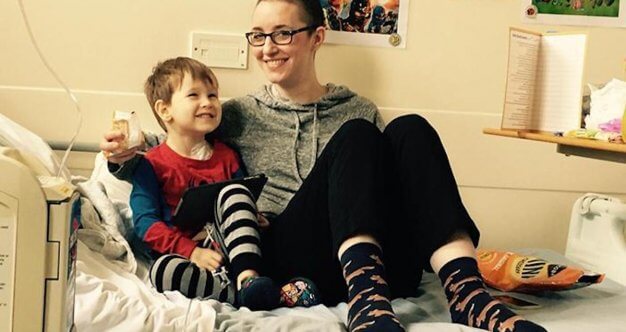Being a young mom who just got diagnosed with cancer is hard enough, but for one mother, it got harder when her son was diagnosed with leukemia just five months later. Vici Rugby had stage 4 colorectal cancer and her three-year-old son George was then told, in the same hospital, that he had acute lymphoblastic leukemia. Both Vici and George are now in remissionand while this type of story is not very common, we do know that in some cases, cancer risk is inherited in genes. Having a family member with cancer doesn’t necessarily mean you’re more likely to get the disease, but there is a genetic factor for some people.
According to the American Cancer Society, as many as 1 in 3 people will have some form of cancer in their lives, so it is very possible that two members of the same family may be diagnosed with different, unrelated types of cancer. However, there is something known as “Family Cancer Syndrome,” which means members of the same family have an increased risk of cancer because of certain gene:
Read MoreIf you have a family history of cancer, it may be wise to look into genetic counseling, advises Rachel Webster, a Genetic Counselor at MD Anderson Cancer Center, which means discussing your history and risk for cancer with a specialist. “Genetic counselors have specialized training in order to figure out what genetic testing might be the most useful for you and your family,” she explains.
Learn more about SurvivorNet's rigorous medical review process.


